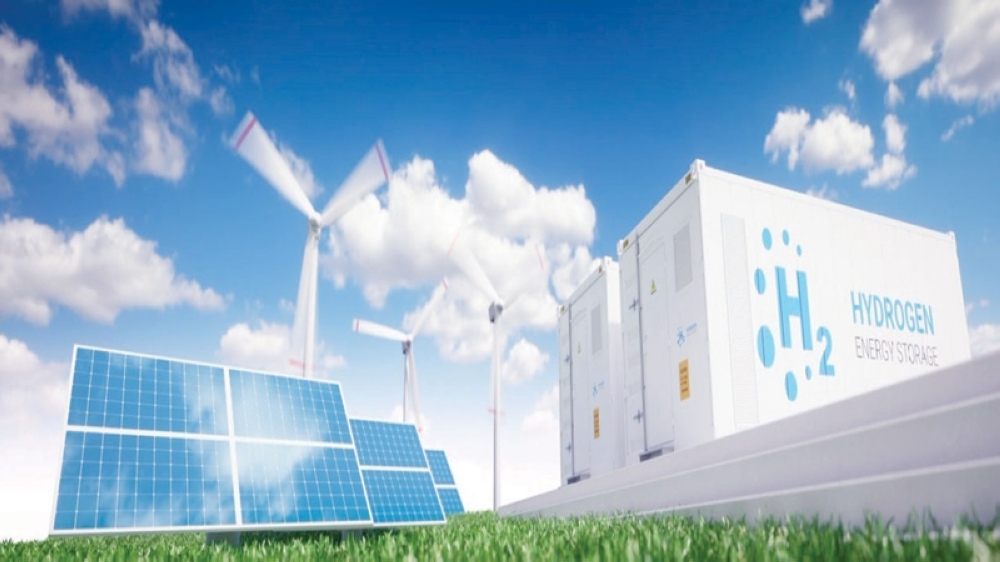

There is no alternative to the use of hydrogen for climate protection. Climate change and the resulting measures require a lot of effort, money; and above all the right solutions. A meaningful project that is perceived worldwide as a model for a complete technological change is therefore particularly important — and the ‘Bonn Climate Project’ and the CTC Bonn stand for this perfectly! We can already see big steps towards a hydrogen economy in Germany. Steps are good, but not enough, we need the implementation of a hydrogen economy — now!
Now the Gulf states and North Africa in particular are called upon, because without the supply of hydrogen from these countries, the absolutely necessary immediate conversion to a hydrogen economy worldwide is not possible. These countries have the unique opportunity to supply Europe and the world no longer (only) with oil and natural gas, ultimately hydrocarbon fuels, but with pure CO2-free hydrogen. This is possible from North Africa via the existing natural gas pipelines or from the Gulf countries using liquid hydrogen by tanker. Therefore, nothing has to change in the business model of the oil-exporting countries — only the share of export quantities of green or blue hydrogen will become larger and larger, since we in Germany and other EU countries want to or have to do without coal combustion and substitute it with the use of hydrogen. Instead of fuels containing hydrocarbons, the countries will export pure hydrogen in the future. Everything can therefore remain with the old system.
Green hydrogen is hydrogen from electrolysis with electricity from renewable energy sources according to electricity criteria for green hydrogen or from biomass, produced in a certified green thermochemical or biological conversion process. Blue hydrogen is climate-neutral hydrogen from natural gas with CO2 capture and storage.
The Gulf countries are the ideal future producer and supplier of green hydrogen because of the very cheap production of electricity from solar power plants. The enormous demand for green hydrogen for the transport, industrial and residential sectors cannot be produced from the sources available in Germany and Europe.
In this way, the Gulf countries can already counteract a possible drop in prices and loss of importance of crude oil and natural gas due to steadily increasing electro-mobility and (over) compensate for it by supplying hydrogen.
The increasing importance of hydrogen as an energy carrier will inevitably lead to the market establishment of hydrogen technologies. Market establishment will in turn lead to a further increase in demand. The participation of the Gulf countries in this cycle has a socio-political and socio-economic dimension.
“The Arab world faces major sustainability challenges in achieving social, economic and environmental goals. The hydrogen economy can help Arab governments, businesses and citizens save billions of US dollars each year through lower energy costs and sustainable waste management, while reducing their carbon footprint — a win-win solution. Extremely dry climates, acute water shortages, high energy consumption and pollution from the oil and gas industry present a unique challenge to Arab countries. Almost one-fifth of the Arab population relies on non-commercial fuels for various energy uses. All sectors of the economy — residential, commercial, transport, services and agriculture — demand modern energy services. Gaseous emissions from the exploration and burning of fossil fuels pollute the atmosphere in the Arab world. Waste management has become a major environmental problem as mountains of waste accumulate in the large cities of the Arab world. Arab countries have higher emissions of nitrogen oxides, sulphur dioxide and volatile organic compounds compared to other countries.
More than 40 per cent of the Arab population in poor rural and urban areas does not have adequate access to energy services. It is also noted that almost one fifth of the Arab population relies on non-commercial fuels for various energy uses.
[Heinz J Sturm is Founder & CEO of ICEPS CTC Bonn, and author of the Bonn Climate Project. A hydrogen and fuel cell expert and technician, Sturm is dedicated to the adoption of hydrogen energy and circular economies. Email: HeinzSturm@clean-energy-bonn.org]
Oman Observer is now on the WhatsApp channel. Click here


